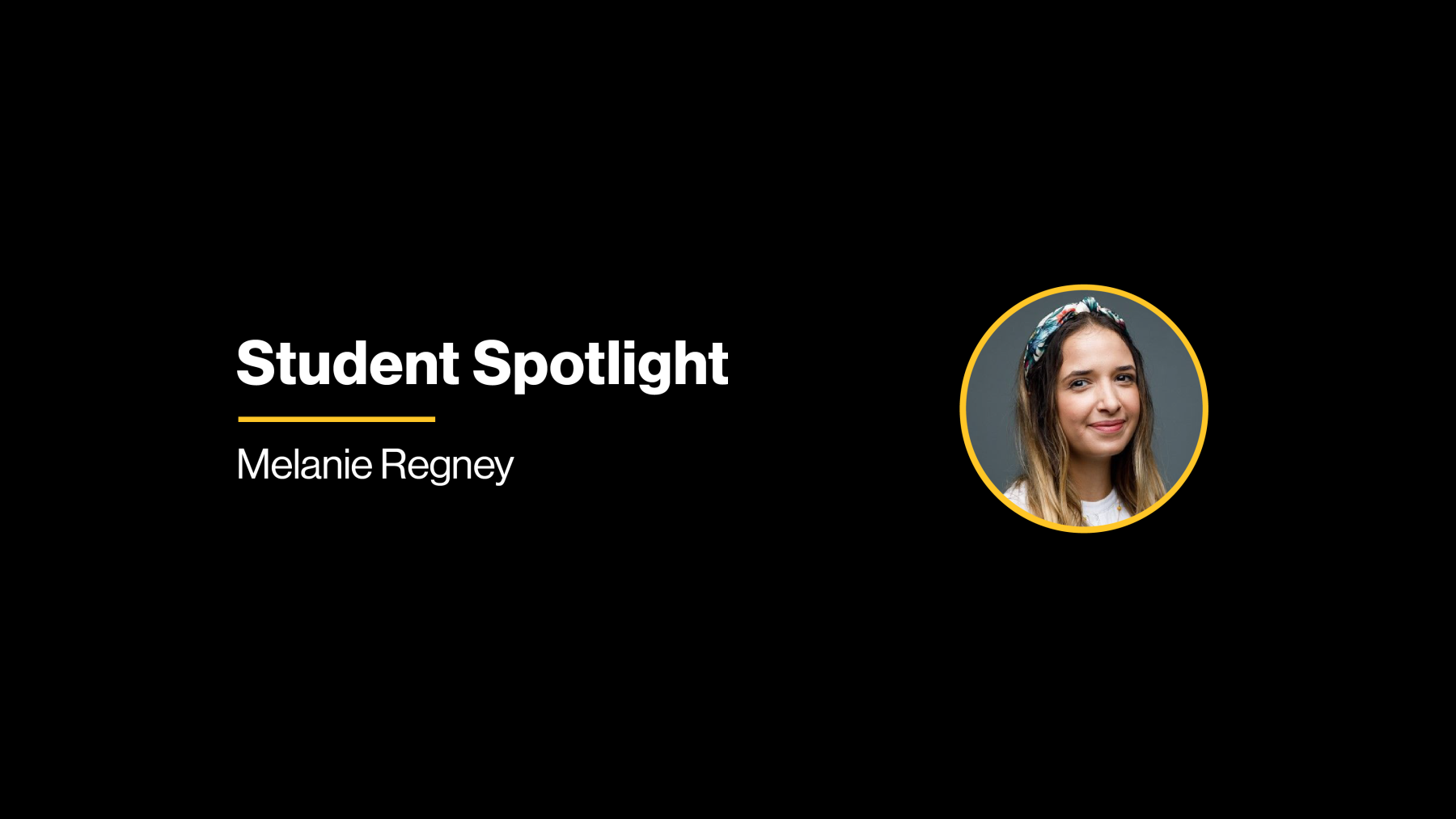
Enrichment Fellow explores the intricate relationship between viruses and their animal hosts
Meet Melanie Regney, a PhD student researching viruses in marine animals and polar environments. In this Q&A, this Enrichment Fellow discusses her research progress and challenges and her favorite hobbies, such as painting, to relax! She talks about how she balances her academic and personal life and provides helpful advice to current students.
Please tell us about your academic and professional background.
I acknowledge the importance of global science and the need for knowledge to solve significant problems. Because of this, I chose to undertake a bachelor’s degree in biotechnology engineering at the Polytechnic University of the State of Morelos in Mexico. As an undergraduate, I assisted at the National Institute of Public Health (INSP) in the Division of Infectious Diseases. Between completing my bachelor’s degree and starting the graduate program at Arizona State University, I worked as a quality control technologist for APS La Belle, a manufacturing company of various colostrum products. My passion for contributing to life science research has led me to continue to master my education by studying in a graduate program at ASU. Growing up, my dad was an alumnus of ASU, so I always felt a deep connection to the university. I am a second-year PhD student in the Molecular and Cellular Biology program at the School of Life Sciences.
What’s something you learned during your professional or academic journey that surprised you or changed your perspective?
Developing myself as a woman in science in Mexico was challenging because of the social stereotypes and the lack of funding for many scientific fields. I acquired a troubleshooting mentality by developing the best outcome for a research project with few or no optimal resources.
What types of problems do you work on and why do you think they are important?
I am researching the presence and prevalence of certain viruses in penguins, seals and other marine animals in Antarctica and how these have evolved. There needs to be more fundamental knowledge regarding viruses in polar ecosystems. My research will help better understand the polar disease ecology and viral diversity in the world’s coldest and most isolated continent. Understanding animal population interactions and their viral dynamics in Antarctica can have far-reaching implications for the planet.
How did you become involved in this work? What inspired you?
Even before applying to the graduate program, I knew I wanted to be part of the Varsani lab. This molecular virology research group works across ecosystems and believes in inclusivity, diversity and companionship — values I closely relate to. Reading about their research in all places of the world inspired me to think on a broader scale. My interest in the microscopic world and viruses intensified — I desired to conduct research in every corner of the planet, and I knew Dr. Arvind Varsani was the right mentor for me.
How have you interacted with the Graduate College? Is there an event, initiative or funding opportunity you’re excited about?
As part of the Enrichment Fellowship, we have had two welcoming events where we interacted with other students and faculty. We are also required to enroll in a seminar every Friday. I look forward to this class because it is a way to destress from the week. I have met fascinating people and good friends who share my fellowship and are in similar situations. I am excited to share my accomplishments and struggles with an understanding group and learn new skills from my peers.
Also, I feel incredibly grateful to the Graduate College for selecting me as this year’s Enrichment Fellow. It has been an outstanding achievement for my academic and professional career, not only for the valuable financial support it offers but also for the opportunities it has provided me. So far, I have interacted with fellow graduate students from various disciplines, which has broadened my perspectives and ideas. Being part of the fellowship has given me a sense of belonging to a larger academic community.
What advice do you have for students interested in your field or higher education?
Curiosity and passion are the main drivers of my life. My advice is to develop a genuine passion for scientific discovery. Stay informed with updates and information that interests you and can benefit your future career and knowledge expansion. Hands-on experience is invaluable for understanding the practical aspects of science, so seek opportunities for laboratory research and fieldwork. Overall, enjoy the journey! Science can be challenging, but it is also incredibly rewarding and full of exciting possibilities.
What are your relaxation practices to recharge during the semester?
I enjoy doing “soft” activities at home, such as painting or knitting. I don’t do it as often as I would like, but when I feel very stressed or overwhelmed, I know that a long painting session will calm me and make me feel better.
What are some of your long-term professional goals?
My ambition is to visit Antarctica and undertake research there. I am dedicated to substantially contributing to novel discoveries that will help understand and support this poorly studied ecosystem. My career goal is to continue the virology steps from an evolutionary and ecological perspective. I want to discover new things regarding what surrounds me, nature, and the environment. Because wisdom is the biggest gift, it would be a great honor to have the opportunity to transmit my findings not only to the scientific community but to a broader audience.
Learn more about the Graduate College Enrichment Fellowship
More stories from the Graduate Insider

Graduate funding deadlines for Fall

Humanities Week: The Critical Language Scholarship
